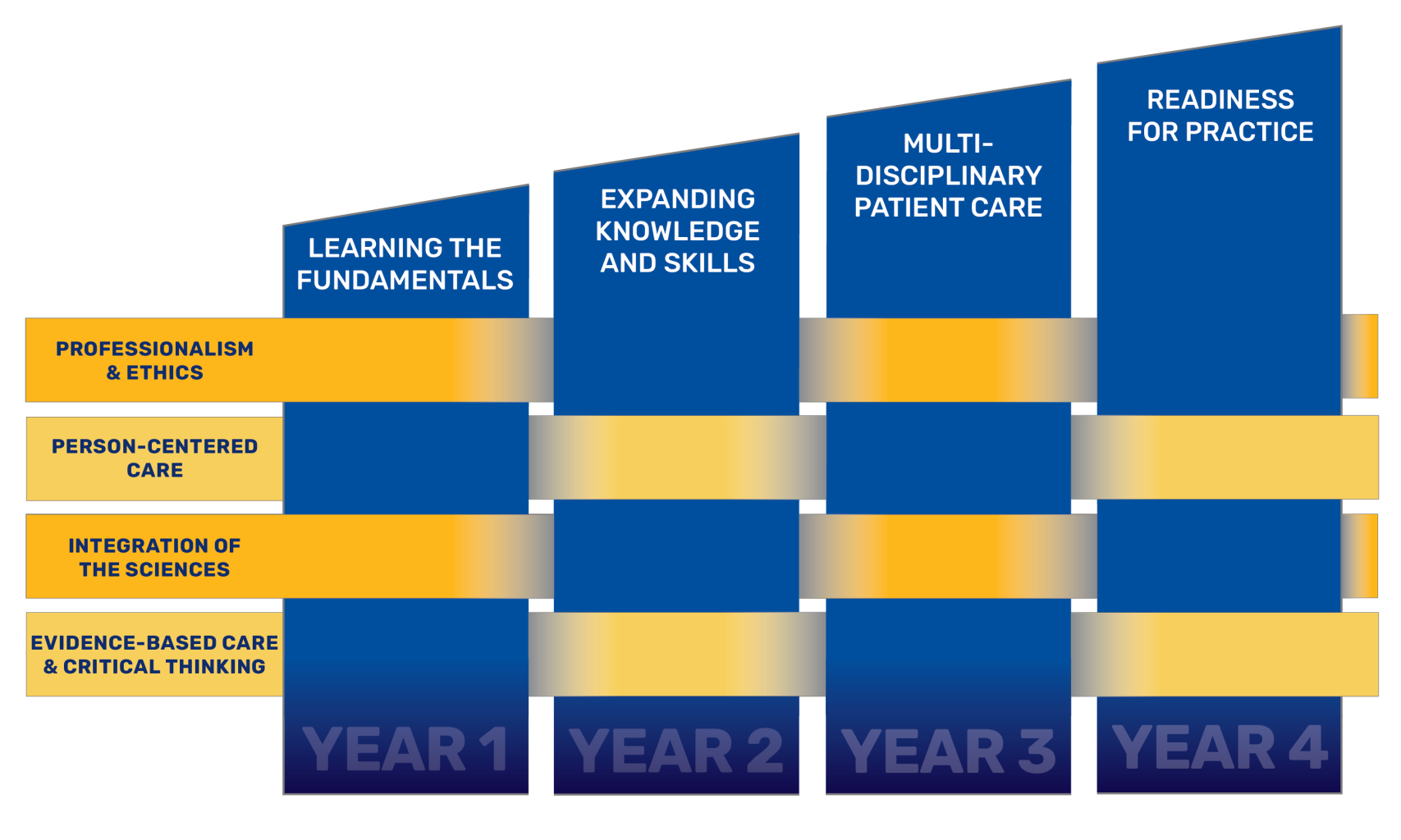The Doctor of Dental Medicine (DMD) curriculum at the University of Pittsburgh School of Dental Medicine consists of a four-year, competency-based educational program that prepares graduates with the knowledge, skills, and values essential to the practice of dentistry. Our curriculum is built on a theme for each of the four years, with four fundamental threads—professionalism and ethics, person-centered care, integration of the sciences, and evidence-based care and critical thinking—woven across all four years.

Multidisciplinary Approach
The Pitt Dental Medicine curriculum has been carefully developed to reflect the importance of exposing students to a range of clinical, research and self-directed learning opportunities. Didactic and laboratory instruction give students both classroom and hands-on training. Patient care experiences begin in the first year and increase in frequency and complexity as the student progresses through the program. Care is delivered in general and specialty clinical areas throughout the school, including our Comprehensive Care Modules, Center for Patients with Special Needs and the Interdisciplinary Implant Center. Students provide care to underserved areas in their fourth year and have opportunities for other community activities through our SCOPE program. Students can explore areas of special interest to them through our extensive selective program offerings. As part of a research University, students also can participate in basic science and clinical research studies that spark their interest. Opportunities to work in teams with other health professions’ students at Pitt are available both within the curriculum and extracurricularly.
DMD Course Schedules
Selective Courses
Students may participate in elective courses, or selectives, as early as the second year of the curriculum, although most students register for selectives during the last two years. Selectives can be in the sciences, research, or clinical areas of interest to the student. Students can teach in the basic science laboratory or may choose to participate with researchers on their studies. Clinically, various selectives are available in each of the ten departments within the school. Some selectives, such as those offered through the Department of Anesthesiology, span the entire year and students earn a certificate at the end of the program.
INBDE First Time Pass Rate
| Class of | Total Number of Students | First Time Pass Rate |
|---|---|---|
| 2023 | 77 | 99% |
| 2024 | 79 | 100% |

